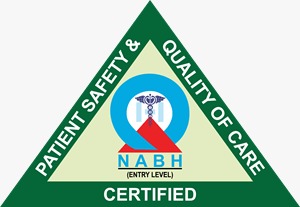About the Department
Respiratory Virology
The Department of Respiratory Virology, established in the year 1972, has complete infrastructure for virus isolation and state-of-art molecular diagnostic facilities for the identification of respiratory viral infections. The department is engaged in research and post graduate teaching of respiratory viruses and conducts diagnostic tests, perform epidemiological studies and extensive research on various aspects of influenza viruses including the development of effective antiviral approaches against emerging and re-emerging viral infections.
In mid eighties, quick viral diagnostic facilities were established by standardizing ELISA and Florescent antibody techniques. Consequently the department was recognized by WHO as a national Centre for respiratory viruses. The Indian Council of Medical Research also recognized the department as the Influenza Monitoring Centre during the year 1981-87. In the year 1989, the department was selected by WHO for a collaborative centre on measles virus strains isolation.
The department is currently headed by Dr. Madhu Khanna, Associate Professor, who has over twenty years of research experience in various aspects of immunology, molecular biology and pathogenesis of dengue and influenza viruses. She has established a complete new state-of art laboratory for animal tissue culture and advanced molecular research and subsequently recognized the department as one of the regional centers in India for influenza surveillance in collaboration with the Indian Council of Medical Research, India and Centers for Diseases Control and Prevention, Atlanta, USA in the year 2006. The department, under her supervision, has screened over thousands of patients for influenza infection. The clinical samples are collected from various hospitals of Delhi including the National Centre for Disease Control, Delhi. Various strains of influenza viruses like influenza A (H3N2, H1N1, pandemic H1N1-2009) and influenza B have been isolated, sub-typed and sequenced in our department. The Ministry of Health and Family Welfare, Govt. of India authorized the laboratory as one of the regional centers for testing of pandemic influenza-H1N1 virus.
The department has contributed significantly to the development of antiviral strategies against influenza viruses using RNAi technology, viz., ribozyme and siRNA and DNA enzymes. The department is in the process of generating monoclonal and recombinant antibodies against influenza viruses that may serve as effective diagnostic tools. Phylogenetic analysis is performed to study the genetic diversity of various human influenza strains. The laboratory is also testing the efficacy of certain chemically synthesized compounds provided by Department of Chemistry, University of Delhi for their antiviral activity against the seasonal as well as pandemic H1N1-2009 viruses. Studies related to the assessment of conserved epitopes of influenza virus have also been done to develop a potential vaccine candidate.
Short term training are regularly imparted to graduate and post-graduate students from Delhi University and other universities on various aspects of influenza virology to strengthen and guide them towards their research pursuits.
The faculty and students of the department have received various national and international awards and recognitions for their research presentations and have published research articles on influenza in various journals of national and international repute. The research activities of the department are funded by different Government agencies like DBT, CSIR, DST, ICMR and DRDO












.png)
.png)


